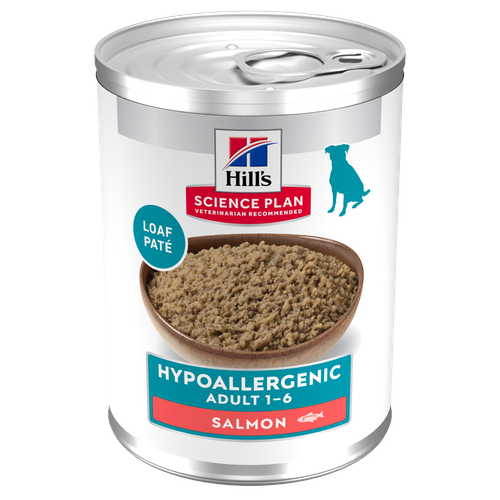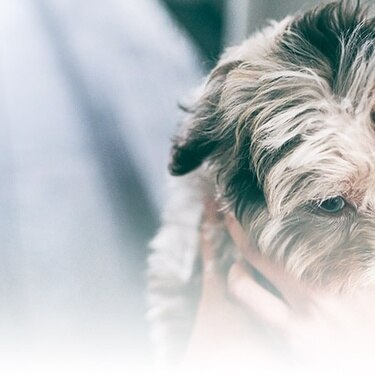
-
Find the right food for your petTake this quiz to see which food may be the best for your furry friend.Find the right food for your petTake this quiz to see which food may be the best for your furry friend.Featured products
 Mature Adult Dog Food
Mature Adult Dog FoodHill's Science Plan Mature Adult Multipack Wet Dog Food with Chicken & Beef are complete premium pet foods for mature adult dogs from 7 years. Your dog will love these deliciously smooth and savoury minced loaves, formulated to deliver the appropriate amount of energy to support the needs of adult dogs.
Shop Now Puppy Food
Puppy FoodHill's Science Plan Puppy Multipack Wet Dog Food with Chicken & Beef are complete premium pet foods for growing puppies from weaning until 1 year old and for pregnant and nursing dogs. Your puppy will love these deliciously smooth and savoury minced loaves, formulated for balanced nutrition and overall health.
Shop Now Adult Wet Dog Food with Beef
Adult Wet Dog Food with BeefHill's Science Plan Adult Multipack Wet Dog Food with Chicken, Beef & Turkey are complete premium pet foods for adult dogs from 1 year. Your dog will love these deliciously smooth and savoury minced loaves, formulated for balanced nutrition and overall health.
Shop NowFeatured products Adult Multipack Wet Cat Food with Beef, Ocean Fish & Chicken
Adult Multipack Wet Cat Food with Beef, Ocean Fish & ChickenTender chunks in gravy for cats, with high-quality protein to maintain lean muscle. With vitamin E and omega-3s & -6s for healthy skin and balanced minerals to support healthy vital organs.
Shop Now Light Adult Multipack Wet Cat Food with Chicken & Ocean Fish
Light Adult Multipack Wet Cat Food with Chicken & Ocean FishTender chicken chunks in gravy for cats, with L-carnitine and fewer calories for ideal weight management. Packed with high-quality protein, omega-6s, and vitamin E for shiny fur and healthy skin.
Shop Now Mature Adult Wet Cat Food with Chicken
Mature Adult Wet Cat Food with Chicken
Tender chicken chunks in gravy for mature adult cats. Made with easy-to-digest ingredients, high-quality protein for lean muscle maintenance and antioxidant vitamins C+E for optimal health.
Shop Now -
Dog
- Dog Tips & Articles
-
Health Category
- Weight
- Food & Environmental Sensitivities
- Urinary
- Digestive
- Joint
- Kidney
-
Life Stage
- Puppy Nutrition
- Adult Nutrition
- Senior Nutrition
Cat- Cat Tips & Articles
-
Health Category
- Weight
- Skin & Food Sensitivities
- Urinary
- Digestive
- Kidney
-
Life Stage
- Kitten Nutrition
- Adult Nutrition
Featured articles The Incredible Science Behind Your Pet's Microbiome
The Incredible Science Behind Your Pet's MicrobiomeLearn what your pet's microbiome is, how it contributes to your pet's gut and overall health, and why nutrition is important in maintaining healthy microbiomes.
Read More Show some love with wet foods: a great choice for pets with health issues
Show some love with wet foods: a great choice for pets with health issuesShow some love with wet foods: a great choice for pets with health issues.
Read More The Right Diet For Your Pet
The Right Diet For Your PetIn people, the right diet is very important. If you are eating the wrong way for your metabolism, activity level, age and lifestyle you could end up with health issues.
Read More -


Big, wet sloppy dog kisses are one of the best things about owning a dog — at least, according to some people. For others, their reaction to dog licking is more of a shriek of disgust. Whether you enjoy playing kissy-face with your dog or not, it's best to understand if you should be allowing these dog kisses or not.
Why Dogs Lick
 Licking is a behaviour that dogs learn from birth, says Animal Planet. As soon as puppies are born, their mother licks them in order to clean them and stimulate breathing, and the pups learn to lick their mother in return. This licking instinct never goes away. The process of licking releases endorphins that provide a sense of pleasure and help to relieve stress, which is why some dogs resort to obsessive licking behaviours when they get anxious. In dog packs, licking also serves as a sign of submission to more dominant members of the pack. When it comes to dogs licking humans, however, it's generally a sign of affection, although sometimes your dog might lick you simply because you taste good.
Licking is a behaviour that dogs learn from birth, says Animal Planet. As soon as puppies are born, their mother licks them in order to clean them and stimulate breathing, and the pups learn to lick their mother in return. This licking instinct never goes away. The process of licking releases endorphins that provide a sense of pleasure and help to relieve stress, which is why some dogs resort to obsessive licking behaviours when they get anxious. In dog packs, licking also serves as a sign of submission to more dominant members of the pack. When it comes to dogs licking humans, however, it's generally a sign of affection, although sometimes your dog might lick you simply because you taste good.
Is Dog Licking Safe?
While it was once believed that dogs' mouths were cleaner than those of humans and that dog saliva had healing properties, this myth has been thoroughly debunked. Considering that dogs are prone to nibbling on poo and licking their own unmentionables, it probably comes as no surprise that in reality, a dog's mouth is a pool of germs. However, while dog saliva can carry such dangerous bacteria as Salmonella and E. coli, as well as parasites like Giardia and Cryptosporidium, these illnesses generally aren't carried in quantities large enough to pose a danger to most humans, and there is very little evidence that dog kisses are a means of transmission.


Tasty Tips
When Dog Kisses Aren't Safe
 Despite the low risk of the average person contracting an illness from dog licking, there are some people for whom the risk is too high to take a chance. Under no circumstances should your dog be allowed to lick anyone who falls into any of these categories, says Vetstreet:
Despite the low risk of the average person contracting an illness from dog licking, there are some people for whom the risk is too high to take a chance. Under no circumstances should your dog be allowed to lick anyone who falls into any of these categories, says Vetstreet:
- Babies
- Pregnant women
- The elderly
- Anyone with pimples or open sores or scratches on their face
- Anyone with a compromised immune system, including someone undergoing chemotherapy, AIDS patients, diabetics, and anyone recovering from an illness
Lowering the Risk
You can lower the risk of contracting illnesses from dog kisses by simply being a responsible pet parent. Regular health checks that include faecal examinations, deworming and treatments to control fleas, ticks and other parasites can go a long way toward reducing the chances that your dog can pass an infection on to you. Properly disposing of your dog's deposits and thoroughly washing your hands afterward can also reduce the risk of spreading disease. Additionally, it's important that your pup's food should be cooked thoroughly — never give them anything raw that might be a source of bacterial infection, such as raw meat or a pig's ear to chew on. Choose a dog food that is balanced and formulated for your dog's health first and foremost. You should also brush your dog's teeth regularly to maintain their oral health, and kill bacteria that might be looming in their mouth.
Putting a Stop to Dog Licking
While it might be safe to allow your pooch to lick you on the face and mouth, if you'd prefer not to take the chance, the best thing to do is nip the behaviour in the bud by teaching your dog not to lick your face. Pet trainer Victoria Stillwell, speaking to Animal Planet, suggests that the best way to do so is to get up and walk away from your dog when they start to lick, ignoring the behaviour completely. Doing so will deprive your dog of any reward they receive from licking, and eventually they’ll stop trying altogether.
If you love swapping kisses with your dog, it's probably safe to keep doing so, as long as your immune system is up to par. But if the thought of your dog licking you on the mouth sends you running for the antibacterial soap, there exists enough of a risk to justify your aversion. Ultimately, allowing your dog to lick your face comes down to the state of your health and your level of risk tolerance. Either way, there are plenty of other ways to share affection with your dog, so don't feel bad if licking isn't one of them.


Jean Marie Bauhaus is a pet parent, pet blogger, and novelist from Tulsa, Oklahoma, where she usually writes under the supervision of a lapful of fur babies.
Related products

Hill's Science Plan Puppy Multipack Wet Dog Food with Chicken & Beef are complete premium pet foods for growing puppies from weaning until 1 year old and for pregnant and nursing dogs. Your puppy will love these deliciously smooth and savoury minced loaves, formulated for balanced nutrition and overall health.

Hill's Science Plan Mature Adult Multipack Wet Dog Food with Chicken & Beef are complete premium pet foods for mature adult dogs from 7 years. Your dog will love these deliciously smooth and savoury minced loaves, formulated to deliver the appropriate amount of energy to support the needs of adult dogs.

Hill's Science Plan Adult Multipack Wet Dog Food with Chicken, Beef & Turkey are complete premium pet foods for adult dogs from 1 year. Your dog will love these deliciously smooth and savoury minced loaves, formulated for balanced nutrition and overall health.

Hill's Science Plan Hypoallergenic Adult Wet Dog Food with Salmon is a complete premium pet food for all adult dogs from 1 year. This savoury tinned loaf is specially formulated for dogs with delicate skin and stomachs. It features a single novel animal protein source and is grain-free.
Related articles

Learn effective tips for feeding a dog that's a picky eater and ensure proper nutrition for a finicky eater. Discover tips for pet parents at Hill's Pet UK.

How, when and what to feed your new puppy is an important decision, learn more about the things to consider for feeding your puppy.

Many human foods are dangerous to dogs. Read about 5 of the worst toxic food offenders that can kill your dog - and how much it takes to hurt them.

Learn about the potential health risks of a raw diet for dogs and why they aren't the best option for your pup or you.

Put your dog on a diet without them knowing
Our low calorie formula helps you control your dog's weight. It's packed with high-quality protein for building lean muscles, and made with purposeful ingredients for a flavourful, nutritious meal. Clinically proven antioxidants, Vitamin C+E, help promote a healthy immune system.
Put your dog on a diet without them knowing
Our low calorie formula helps you control your dog's weight. It's packed with high-quality protein for building lean muscles, and made with purposeful ingredients for a flavourful, nutritious meal. Clinically proven antioxidants, Vitamin C+E, help promote a healthy immune system.

